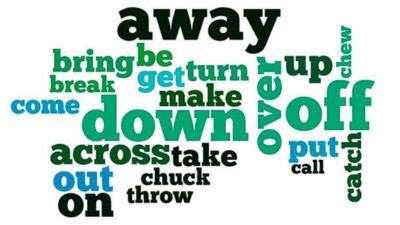English Phrasal Verbs: A Complete Guide with Examples

If you’re learning English, you’ve probably realized by now that phrasal verbs are a huge and tricky part of the language.
Mastering common phrasal verbs and understanding how to use them properly can help you speak English more fluently and sound more like a native speaker.
In this comprehensive guide, we will cover the following topics:
- What are phrasal verbs and why are they important?
- Common phrasal verbs and example sentences
- Separable and inseparable phrasal verbs
- Phrasal verbs in different tenses and voices
- Avoiding common mistakes with phrasal verbs
- How to learn and memorize phrasal verbs
- List of 150 useful phrasal verbs with examples
Let’s dive in and unlock the magic of phrasal verbs!
What Are Phrasal Verbs?
Basically, a phrasal verb is when you take a normal verb like “go” or “come” and add a preposition or adverb to make a new verb with a special meaning. They’re super common in everyday English.
Some examples:
- Look up – search for something, like if you had to look up a word in a dictionary
- Break down – when something stops working properly, like if your car breaks down on the highway
- Work out – exercise, like going to the gym to work out your biceps
- Hang out – chill or spend time with friends, like hanging out at the mall
See what I mean? The verb plus preposition combo creates a new verb with its own unique meaning.
Native English speakers use phrasal verbs all the time without even realizing it. But for learners like you and me, they can be confusing at first.
Why Are Phrasal Verbs Important?
Great question! Here’s why you gotta get comfortable with phrasal verbs:
- They’re super common – you can’t have a conversation or read a book without seeing phrasal verbs everywhere. You gotta know them to understand English!
- They sound natural – using phrasal verbs will make you sound casual and fluent like a native speaker, not robotic and weird. Bam!
- They let you say more with less – a single phrasal verb like “figure out” packs a lot of meaning into two little words. Efficient!
- They spice up your speaking – overusing basic verbs gets hella boring. Throwing in phrasal verbs makes your speech colorful and lively.
- They unlock new meanings – many phrasal verbs have slightly different meanings from normal verbs. Knowing them gives you nuance superpowers!
So in summary, phrasal verbs should not be overlooked. They’re mandatory if you want to unlock true speaking mastery!
Let’s Look at Some Common Phrasal Verbs with Examples
Okay, time for the fun part – seeing phrasal verbs used properly in real sentences. I’ll show you some of the most common ones so you can get a feel for how they work.
Study these sentences, note the meanings, and maybe try making some examples of your own!
Look Up
Meaning: search for information
Examples:
- I don’t know what “blatant” means, so I’ll have to look it up in the dictionary.
- Can you please look up Sarah’s phone number for me? I don’t have it.
Break Down
Meaning: stop working properly
Examples:
- My stupid car broke down again even though I just had it repaired. Ugh!
- The negotiations broke down and the deal fell through in the final stages.
Work Out
Meaning: exercise
Examples:
- I try to work out at the gym 3 times a week, but sometimes I’m lazy lol.
- He’s obsessed with working out – he even brings dumbbells on vacation!
Hang Out
Meaning: casually spend time with friends
Examples:
- We’re going to hang out at my place and order pizza this weekend. Wanna join?
- I love hanging out with Jess – we always have the best time giggling for hours.
Pick Up
Meaning: collect someone or something
Examples:
- Could you please pick me up from the airport tomorrow at 5pm?
- Don’t forget to pick up some milk and eggs at the grocery store on your way home.
Put Off
Meaning: delay or postpone
Examples:
- Ugh, I always put off doing my taxes until the last minute. Bad habit!
- He kept putting off the deadline for submissions but we really need them ASAP.
Give Up
- Meaning: quit or stop trying
Examples:
- I know learning vocabulary is hard, but don’t give up! You got this!
- John gave up cigarettes last year and says he feels healthier already.
Make Up
Meaning: invent or fabricate
Examples:
- When my mom asked where I was last night, I made up some story about studying at the library lol.
- Don’t believe anything Bill says. He always makes up ridiculous lies for attention.
Take Off
Meaning: leave the ground and start flying (for planes)
Examples:
- My flight takes off at 9am so I need to be at the airport by 7.
- There were long delays because the planes couldn’t safely take off in the storms.
Try Out
Meaning: test or sample something before deciding to use/buy it
Examples:
- My new shoes were hurting my feet so I went back to the store to try out a larger pair.
- Come try out this cake recipe and let me know if you think I should make it for the party.
Check Out
Meaning: look at or investigate
Examples:
- We should totally check out that new burger place that opened downtown. I heard it’s delicious.
- I’m worried about those symptoms you mentioned. You should get them checked out by your doctor.
Okay, what do you think? Do these example sentences help explain how phrasal verbs work?
Use this kind of context practice to grow your phrasal verb knowledge. Keep a notebook of new ones you discover, and review it often. Repetition and seeing examples are key!
Separable vs. Inseparable Phrasal Verbs
This is a super important phrasal verb distinction to understand:
Separable phrasal verbs are when the object can go between the verb and preposition/adverb. For example:
- Turn down the music.
- Turn the music down.
Inseparable phrasal verbs don’t allow you to split up the pair. For example:
- She ran into her friend (inseparable)
- She ran into her friend (still inseparable)
Some phrasal verbs are separable in one meaning but inseparable in another meaning.
Tricky! Like take “turn on” for example:
- I turned on the lights (separable) – I turned the lights on.
- The meeting turned on the budget talks (inseparable)
So yeah, you gotta be careful with separable vs. inseparable. Knowing how to properly use phrasal verbs in sentences takes practice.
The more examples you see and create yourself, the more your brain will get used to which are which. Keep at it champ!
Using Phrasal Verbs in Different Tenses and Voices
Phrasal verbs sometimes act tricky when you try to use them in different tenses like past, future, perfect, continuous, etc. But again, there are rules you can learn!
Let’s practice conjugating some phrasal verbs properly in various tenses:
Present Simple
- I look up new words every single day.
- She works out at the gym religiously.
Past Simple
- He broke down crying during his graduation speech yesterday.
- We put off finalizing our vacation plans last year and never actually went.
Future Simple
- Our flight will take off from LAX promptly at 6am tomorrow morning.
- I will check out that new Italian restaurant this weekend for sure.
Present Continuous
- I’m looking up some info about Australia right now to help plan my trip.
- She is making up a believable story about her crazy weekend to tell her parents.
Past Continuous
- He was trying out those expensive sneakers when I got to the shoe store.
- We were hanging out in John’s basement all afternoon yesterday.
Present Perfect
- I have given up desserts completely for the past two months to get in shape.
- She has taken off work for the next week for some R&R.
Past Perfect
- He had worked out for two hours before going to his friend’s birthday party.
- I had looked up directions to her house before driving all the way there and getting lost.
Passive Voice
- The first prize was picked up by Johnny after he won the dance competition.
- Their vacation request has been turned down by the boss twice now.
See how the phrasal verbs change their form correctly to match the tense? With enough examples and practice, using phrasal verbs in different tenses will become second nature my friend.
Avoiding Sneaky Phrasal Verb Mistakes
Like with anything in English, there are some common mistakes that even advanced speakers make with phrasal verbs. Here are some to look out for so you don’t fall into their trap!
Don’t separate inseparable phrasal verbs – For example “turn the budget on” is wrong if “turn on” must be inseparable in that context.
Don’t omit necessary particles – For example “She finally gave smoking” is incorrect – needs the “up” at the end.
Don’t add unnecessary particles – For instance “He stood the test up” doesn’t work because “stand up” is not a phrasal verb.
Don’t confuse phrasal verbs – Some have opposite meanings, like “show up” (arrive) and “show off” (brag). Mixing them up changes your message!
Don’t overuse phrasal verbs – Too many can sound weird if you use them for every verb. Sprinkle them in naturally.
Practice makes perfect here! The more examples you see and use yourself, the better your phrasal verb radar will get. You’ll start catching and fixing mistakes automatically.
Tips to Learn and Memorize Phrasal Verbs
We’ve covered a lot of stuff about phrasal verbs so far. Let’s wrap up with my pro tips for mastering them:
- Learn phrasal verbs from example sentences – out of context they make zero sense!
- Focus on the most common ones first – you don’t need to learn every obscure phrasal verb in existence. Start with maybe the top 100-200.
- Study a few new phrasal verbs every day – little by little, they’ll stick better than cramming.
- Say example sentences out loud – speaking phrasal verbs helps get your mouth used to them.
- Write down new ones you notice – keep your own phrasal verb dictionary you can reference.
- Use them in your speech and writing – actively using them yourself is mega helpful.
- Play quiz games for practice – flashcards, quizzes, etc. make learning interactive and fun!
- Highlight the particles when reading – this trains your brain to spot phrasal verbs automatically.
Stick with it and be patient. Phrasal verbs will go from feeling impossible to natural. You CAN crack the phrasal verb code!
Here is a list of 150 phrasal verbs to remember:
- Act up – The children started to act up when they got tired.
- Back up – Please back up your computer files regularly.
- Bear with – Bear with me for a minute while I find the right file.
- Blend in – She was able to blend in with the crowd.
- Blow up – The balloon blew up and popped.
- Break in – Someone broke in and stole the TV.
- Bring about – His speech brought about a change in policy.
- Brush up – I need to brush up on my Spanish before our trip.
- Buckle down – It’s time to buckle down and start studying for finals.
- Build up – She built up the business over many years.
- Burn out – The candle burned out and left the room dark.
- Call off – They called off the picnic due to rain.
- Calm down – I asked my kids to calm down and be quiet.
- Carry out – We need to carry out the plan perfectly.
- Catch on – That trend is starting to catch on with teenagers.
- Check in – Don’t forget to check in for your flight.
- Cheer up – She tried to cheer him up by telling jokes.
- Chip in – We all chipped in to buy a gift for our teacher.
- Clean up – Please clean up your room before dinner.
- Clear out – We cleared out the closet to make space.
- Come across – I came across some old photos in the attic.
- Come along – Why don’t you come along with us to the museum?
- Come through – He really came through for me when I needed help.
- Count on – You can always count on them to help out.
- Cross out – Please cross out any incorrect information.
- Cut back – We need to cut back on spending right now.
- Die out – Sadly, that language has died out completely.
- Do over – Can I have a do over? I messed up the first time.
- Draw up – She drew up a contract for both parties to sign.
- Drive off – After the robbery, the thieves drove off quickly.
- Drop in – Feel free to drop in any time you’re in the neighborhood.
- Eat out – We eat out once a week as a treat.
- End up – We ended up getting lost on our hike.
- Fall behind – I’m starting to fall behind in my algebra class.
- Figure out – She finally figured out the solution.
- Fill in – Please fill in all the fields on the application form.
- Fill up – I always fill up the tank when it gets low.
- Find out – We need to find out more about the new regulations.
- Get away – They went to Fiji to get away for a week.
- Get out – Please get all the toys out of the living room.
- Give back – I have to give back the book I borrowed soon.
- Go ahead – Please, go ahead and ask any questions you may have.
- Go for – I think you should go for that promotion.
- Go off – The alarm went off at 5 am and woke us up.
- Go on – Please go on, I’m listening intently.
- Grow up – When I grow up I want to be a pilot.
- Hand in – Don’t forget to hand in your homework by Friday.
- Hand out – She handed out the flyers at the mall.
- Have on – What shoes do you have on today?
- Head out – We’re going to head out for dinner soon.
- Hear from – I haven’t heard from her in several months.
- Hit back – If you get criticized unfairly, don’t hit back.
- Hold on – Please hold on while I transfer your call.
- Iron out – We need to iron out these issues before moving forward.
- Jump in – Feel free to jump in with questions at any point.
- Keep on – He told me to keep on running no matter how tired I felt.
- Kick out – The unruly customer was kicked out of the restaurant.
- Knock off – She knocked off work early on Friday.
- Lay off – You should lay off the fried foods for a while.
- Leave out – Don’t leave out any important details from your report.
- Let down – I don’t want to let my team down by not preparing enough.
- Look after – Who will look after the dog while we’re away?
- Make fun of – It’s not nice to make fun of people.
- Make sense – His explanation makes perfect sense to me now.
- Mix up – I always mix up those two brothers’ names.
- Nod off – The bored student nodded off during the lecture.
- Opt out – You can choose to opt out of receiving promotional emails.
- Own up – Just own up to your mistakes and apologize.
- Pass away – His grandfather passed away peacefully in his sleep.
- Pass out – She was so exhausted that she passed out on the couch.
- Pay back – I’ll pay you back the $20 I owe you on Friday.
- Pitch in – We could use an extra hand if you want to pitch in.
- Point out – May I point out a spelling error on page 2?
- Put forward – I’d like to put forward a proposal for a new process.
- Put out – The firefighters put out the house fire.
- Put through – Please hold while I put your call through.
- Run into – I ran into an old friend at the mall yesterday.
- Run out – We ran out of milk this morning.
- See off – We went to see her off at the airport.
- See through – I can see through all your excuses.
- Sell out – The concert tickets sold out in minutes.
- Set aside – Please set aside some time to review these documents.
- Set up – I set up a meeting for next Tuesday at 10 am.
- Shop around – Make sure to shop around for the best price.
- Show around – Let me show you around the office today.
- Sleep in – I love when I can sleep in on weekends.
- Slow down – You need to slow down and look at the details carefully.
- Speed up – Can you please speed up the project timeline?
- Stand for – What does that acronym stand for again?
- Step down – The CEO stepped down from his position last month.
- Step up – It’s time for someone to step up and take responsibility.
- Stick to – Please stick to the agenda for our meeting today.
- Switch off – Don’t forget to switch off the lights before leaving.
- Take after – She really takes after her mother.
- Take down – Please take down the Christmas decorations.
- Take in – We took in a foster child who needed a loving home.
- Take off – He took off running down the street.
- Tear up – The letter was so touching that she teared up.
- Think back – If I think back, I believe it was in October.
- Throw away – This food has expired so I need to throw it away.
- Touch on – His speech touched on several controversial topics.
- Try on – Feel free to try on as many dresses as you’d like.
- Turn down – She turned down the job offer in the city.
- Wait on – The waiter came by to wait on us shortly after we arrived.
- Wake up – My alarm wakes me up at 6 am for work.
- Watch out – Watch out, there’s a car coming!
- Wear off – The effects started to wear off after a few hours.
- Wipe off – I wiped off the counters after cooking.
- Work out – We need to work out the rental logistics.
- Zone out – She zoned out during the meeting and didn’t hear a thing.
- Be into – I’m really into painting right now.
- Come from – Where do your ancestors come from?
- Fall through – Unfortunately, the job offer fell through.
- Get at – What exactly are you getting at? Please explain.
- Get back – We got back from our vacation last night.
- Get into – I’m trying to get into reading more.
- Get through – Did you get through the whole report I sent you?
- Go without – We may have to go without electricity for a few days.
- Hand out – The professor handed out the syllabus on the first day of class.
- Keep up – I’m struggling to keep up with all the new software features.
- Leave out – Don’t leave out any steps when following the recipe.
- Look into – We’re looking into more eco-friendly manufacturing processes.
- Make over – I want to give my living room a bold makeover.
- Pass up – I didn’t want to pass up this career opportunity.
- Pick out – Let me pick out a tie for you to wear.
- Point to – All evidence points to him being guilty.
- Run over – A dog ran over and greeted us in the park.
- See about – I’ll see about fixing that shower handle this weekend.
- Take after – She really takes after her grandmother’s sense of style.
- Wait for – We’ll wait for you at the restaurant entrance.
- Watch out – Watch out for black ice on the roads during the winter.
- Account for – Their unique strategy accounts for 30% of their sales.
- Catch up – Let’s meet up soon to catch up on each other’s lives!
- Check over – Can you check over my essay for any mistakes?
- Fight back – Don’t let bullies get you down; fight back!
- Figure out – It took me a while to figure out the public transit system.
- Go with – Which dress do you think I should go with for the party?
- Help out – My brother helped out a lot in getting the house ready to sell.
- Make sense – His explanation finally makes sense to me now.
- Pass away – Her grandfather sadly passed away last year.
- Pay off – With hard work, her loan was finally paid off.
- Run away – The child ran away from home after an argument.
- Show up – Thankfully, the mechanic showed up right on time.
- Take down – The storm took down power lines all over the county.
- Wait up – Please wait up, I’ll be ready in 5 minutes!
- Ward off – Eating well can help ward off illness.
- Ask around – I asked around but nobody knew her address.
- Break down – The truck broke down in the middle of the desert.
- Build up – It took years for her to build up the business.
- Point out – His teacher politely pointed out his mistakes.
Key Takeaways:
Congratulations for making it through this phrasal verb crash course!
Here’s what you can take away:
- Phrasal verbs are common verbs combined with particles that make new meanings.
- They’re everywhere in English, so you gotta know ‘em!
- Separable phrasal verbs let you split them around the object, inseparable don’t.
- Use examples and practice to get comfy with phrasal verbs in different tenses.
- Avoid common mistakes by learning phrasal verbs in context.
- Review them daily and use quiz games to learn. Don’t give up!
You’re now equipped with the skills you need to master English phrasal verbs. Trust me, keep reviewing this guide and practicing, and you’ll be speaking like a native in no time.












